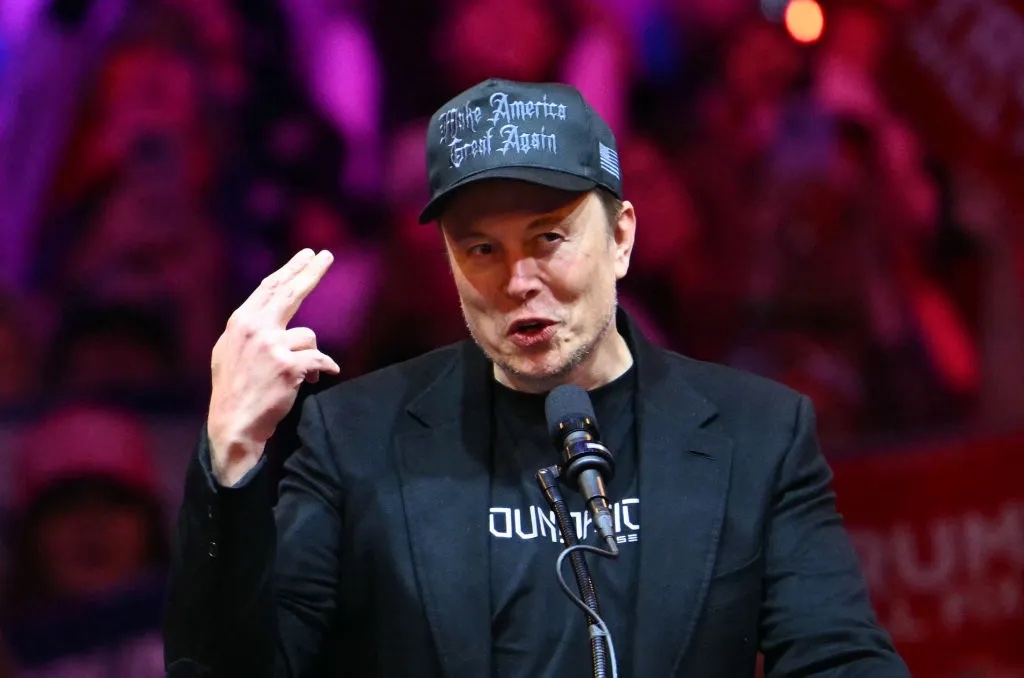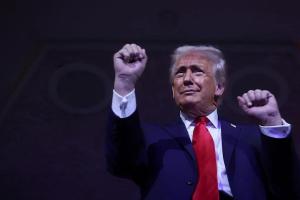Perhaps he will walk through the lobby of the Pentagon with a kitchen sink. Or fire the entire IT department at the Fed, shift the IRS to Mars, while replacing traffic police with fully autonomous Tesla robo-cops. No one has any real idea yet what Elon Musk, the entrepreneur behind Tesla and SpaceX, might come up with now he has been appointed by Donald Trump to head up a new Department of Government Efficiency (or “DOGE”). One point is certain, however. There will be some spectacular fireworks. And it will throw down a challenge to bloated governments everywhere.
Nobody gets to amass a $300 billion fortune, working in manufacturing and technology, without an ability to embrace new ideas, and disrupt established ways of working
Musk’s appointment will no doubt be hugely controversial. Working alongside Vivek Ramaswamy, he will head a newly created agency that will look to radically restructure the size of the state. On the campaign trail over the last few weeks, Musk has suggested cutting spending by $2 trillion, or almost a third of the federal government’s $6.7 trillion budget. It is an almost unimaginable sum that will create huge opposition. And of course, there will be plenty of allegations of cronyism. Musk will be working outside the government, so his business interests won’t be subject to regulation. If any of his government reforms helps one of these companies — and it probably will — there will be howls of outrage.
And yet, in spite of all that, Musk is a brilliant appointment. To start with, he is an innovator. Nobody gets to amass a $300 billion fortune, working in manufacturing and technology, without an ability to embrace new ideas, and disrupt established ways of working. Musk has built two huge companies, and has plenty more bubbling away. If anyone can bring genuinely fresh thinking into government, then he probably can. Next, he is a fearless risk-taker. At X, formerly Twitter, which in many ways had become a bloated mini-government (it even had its own foreign affairs department for some unknown reason) he simply slashed staff, and assumed the survivors would find a way to cope. Despite all the predictions of disaster, they did. Finally, he is steeped in techno-libertarianism, a very distinct ideology well outside the mainstream, and yet which also has the intellectual depth to restructure the state. He will be bringing that into the heart of the most powerful state in the world.
Governments all over the world pay lip-service to cutting red-tape. Even the Starmer administration in the UK, with its passion for interference, has set up the oddly named “Regulatory Innovation Unit,” while the EU has pledged to reduce bureaucracy. And yet, it keeps growing relentlessly.
Even in the US, where the state is smaller than in most of Europe, the Code of Federal Regulations, published annually, has grown eight-fold since 1960, and now runs to 180,000 plus pages. None of the “reviews” and “task forces” created to tackle it have made much of a difference. Cutting it back will require genuine innovation, and taking lots of risks. There is a chance Musk might be able to succeed — and if he does he will throw down a challenge to bloated governments everywhere.
This article was originally published on The Spectator’s UK website.

























